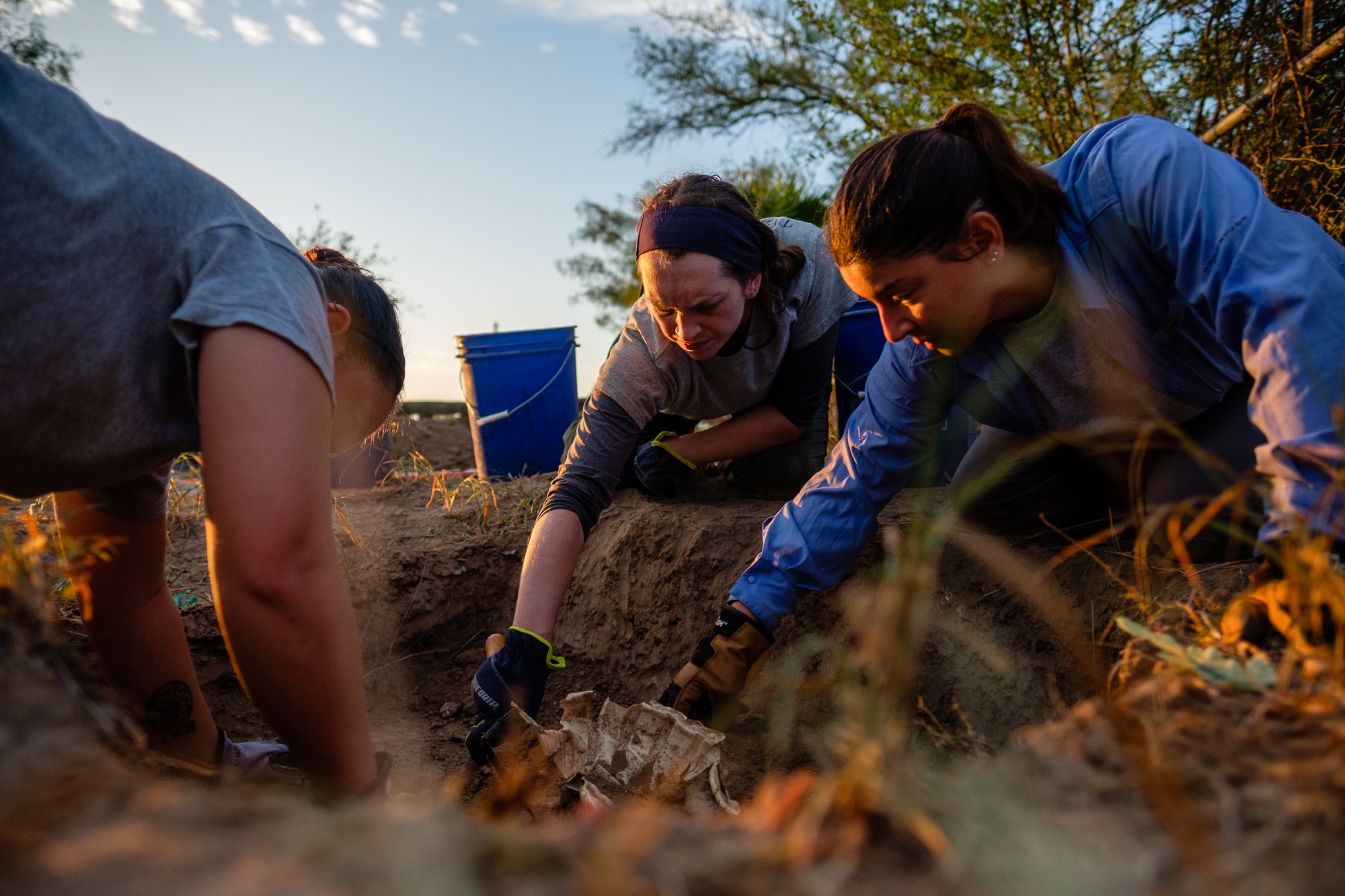CSI may dominate the popular imagination when it comes to solving crimes. But reality is not all lasers and high-tech machines, says Bernardo Ruiz, the Mexican-American documentarian behind films such as Kingdom of Shadows and Reportero. His most recent project, El Equipo (The Team) is available to stream on PBS now and follows a team of Nobel-nominated Argentinian forensic scientists investigating human rights violations across the globe – with spoons and shovels.
“Collecting evidence is one of the few ways to hold the powerful accountable,” Ruiz tells LatinaMedia.Co after El Equipo screened at the Los Angeles International Film Festival (LALIFF). “It’s about determining what’s happened and bringing some clarity to events. But you’re not bringing back the person. The ideal circumstance is not to have people disappear, not to have people be kidnapped and tortured and murdered.”
Spanning decades, El Equipo opens during the aftermath of the Argentinian Dirty War. An American scientist, Dr. Clyde Snow enlists local anthropology students as the only people brave, or stupid, enough to help him dig up mass graves in Argentina. “The team started in ‘84. They started digging graves and collecting evidence. And in 1985, some of the most powerful military leaders who’d run the dictatorship were… tried successfully,” Ruiz says. “Imagine being in your early 20s, you do work and all of a sudden, you help bring down some of the most powerful people in your country.”
That experience kicks off a lifetime commitment for many of the original team members. Among them is Mercedes “Mimi” Doretti who, along with her team members, the documentary follows as they work to uncover the truth behind atrocities around the globe – from Rowanda to the US-Mexico border to the Balkans to El Salvador.
Along the way, “El Equipo” spends a fair amount of time recounting the friendship between Dr. Snow and his students. Ruiz says he wanted to present “A different kind of US-Latin America story. It’s one about solidarity and one about a kind of close scientific collaboration.” Ruiz characterizes Dr. Snow as “a red state-er, who’s born in Texas, grew up in Oklahoma, didn’t necessarily have progressive politics. But through his life experiences and through this chance meeting with this group of Latin American students ended up really changing his perspective on the world. And it really impacted his entire life.”
And, of course, the same is true on the other side – “these young Latin American students, Argentine students, but also Guatemalan students, their trajectories were changed by this meeting with Clyde Snow. There’s something that I love about this friendship, professional relationship that definitely had its tension and differences. They collaborated over four decades and there’s something very unique about that,” shares Ruiz. “It is a model for a certain kind of collaboration and cooperation around human rights, that actually does happen. It’s just not typically highlighted.”

To tell that story in El Equipo, Ruiz spent a decade building relationships with his subjects, confessing “It’s very hard to make films about scientists because they are dry people. Part of their job is to be dispassionate about facts and be credible… [So] it took a long time to get to a place where there was enough trust between us where they would be well willing to open up somewhat.”
But El Equipo isn’t a film about confessions – “it’s about the past, it’s about history, it’s about memory.” To reflect that, Ruiz built much of the film through extensive archival research, piecing together fragments to tell the team’s story and the story of their work across time and space.
As to why he’s distributing this film now, Ruiz explains, “The generation of people who were in their teens and 20s when those events took place – the dictatorships of the Southern Cone of Chile and Argentina – they are now in their 60s and 70s. And there’s a need to memorialize and record that history. Also, I would argue, there’s a threat from the extreme right-wing, this rise of fascism, this kind of pro-authoritarian wave.”
Stories like El Equipo “arguably have lessons from the past that speak to this moment.” They remind us of the consequences of unchecked power, of our ability to form connections and share information in spite of distance, and how humble work, in this case with spoons and shovels, can dethrone the mighty.

